The rapid development of livestock and poultry farming produces a lot of excrement and sewage. The harmful elements of these fouling are too high to be processed by traditional returning way. For this situation, our company has developed the organic fertilizer production line which use high efficient solid-liquid rotten aseptic deodorization technology as the core, and the whole production equipment process as follows:
1.Raw Material Pre-processing: Organic materials such as animal waste, crop residues, sludge, filter mud, sugar dregs cake are collected and pre-processed. This may involve shredding, crushing, or drying to facilitate subsequent handling and fermentation.
2.Fermentation: The pre-processed organic materials undergo fermentation to decompose organic matter and convert it into stable organic compounds. This process is typically carried out in fermentation tanks or compost turners under controlled conditions of temperature, moisture, and aeration.
3.Crushing and Mixing: After fermentation, the organic materials may undergo further processing such as crushing and mixing to achieve uniform particle size and blend different materials to obtain the desired nutrient composition.
4.Granulation: The mixed organic materials are then fed into a granulation machine to form granules of uniform size and shape. Granulation helps improve the handling, storage, and application of organic fertilizers and ensures controlled nutrient release.
5.Drying: The freshly formed granules may contain excess moisture, which needs to be reduced to improve their stability and shelf life. Granules are typically dried in rotary drum dryers or other drying equipment until they reach the desired moisture content.
6.Cooling: After drying, the granules are cooled to ambient temperature to prevent them from caking or sticking together during storage and transportation. Cooling equipment such as rotary drum coolers or fluidized bed coolers is commonly used for this purpose.
7.Screening and Grading: The cooled granules are screened to remove oversized or undersized particles and ensure product uniformity. Grading may also be carried out to separate granules into different size fractions for specific applications.
8.Packaging and Storage: The final step in the organic fertilizer production line involves packaging the granules into bags, sacks, or other containers for distribution and sale. Proper packaging helps maintain product quality and prolong shelf life. The packaged fertilizers are then stored in a warehouse or shipped directly to customers.
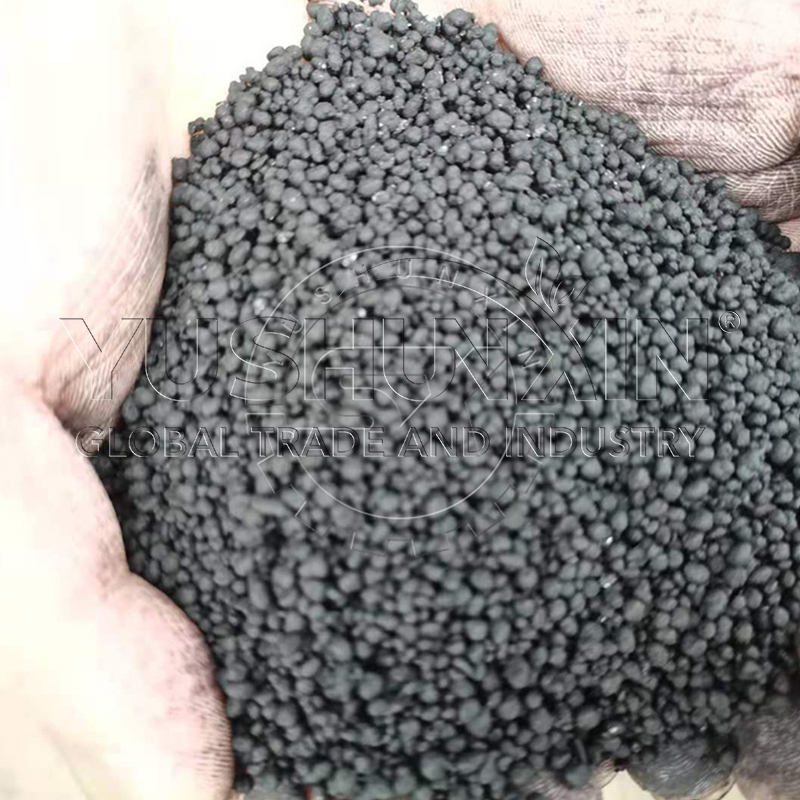
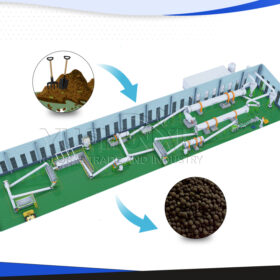
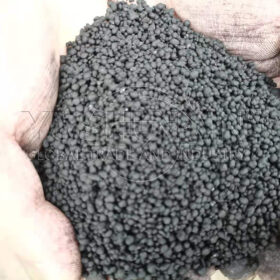
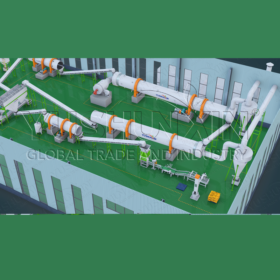
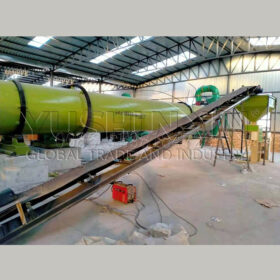
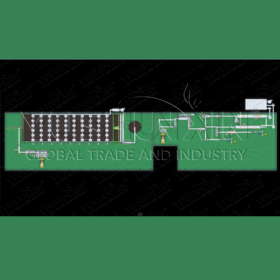
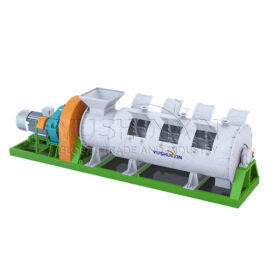
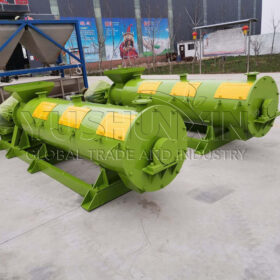
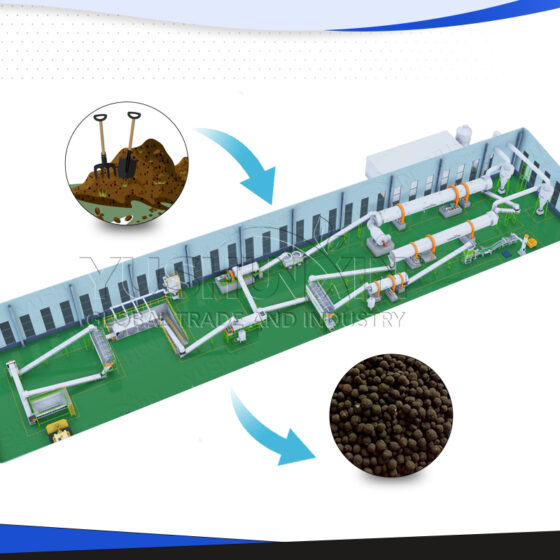
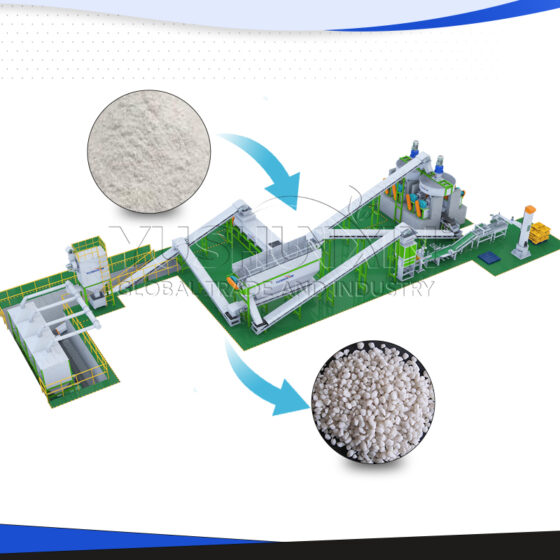
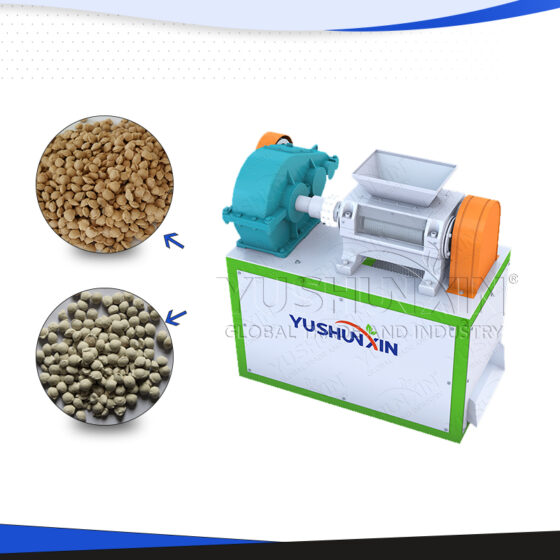
pig manure other organic waste
video. tech info. price
sludge from waste water treatment plant
Fertiliser
I’m interested and I’m very appreciated this from the Allah
Chicken manure
I am interested on Biofertilizer production machine. Kindly forward the update on the cost and the delivery to Nigeria
HOLA:
SOY WILLY CORNEJO DE BOLIVA -SANTA CRUZ QUISIERA CONTACTARME CON ALQUIEN DE SU EMPRESA PARA QUE PUEDA IR HA VISITAR SU EMPRESA. EN EL MES DE OCTUBRE
GRACIAS
This very commendable and I will like to know more, possibly get trained on the processing technique.
Muy interesante y cuánto cuesta esta planta instalada y en funcionamiento.gracias
More details and price
Mouton manure machine
pig manure machine
Cow dung
Granule and Cover with humic
Organic waste in general: pig manure, cow dung, mango waste, bananas waste.
Including shipping to Cartagena Colombia
Agroinsumos Bionativa SAS
Dairy farm manure 5 tons per hours
Type of product you offer
chicken manure, cow dung, 🐑 manure
1 or 5 tons per hour
chicken, pig cow 5 tons per hour
electricity required equipment
Integrated Solutions & Development Consulting
Hi this is Raphael,want detailsand price
Organic fertiliser line aims to build up soil health overtime
5 to20t
5 to 20tones per hecter of compost is applied
Urea as compound fertilizer
pih manure systerm eqiupment
Im interested about organic materials
, i want to work on